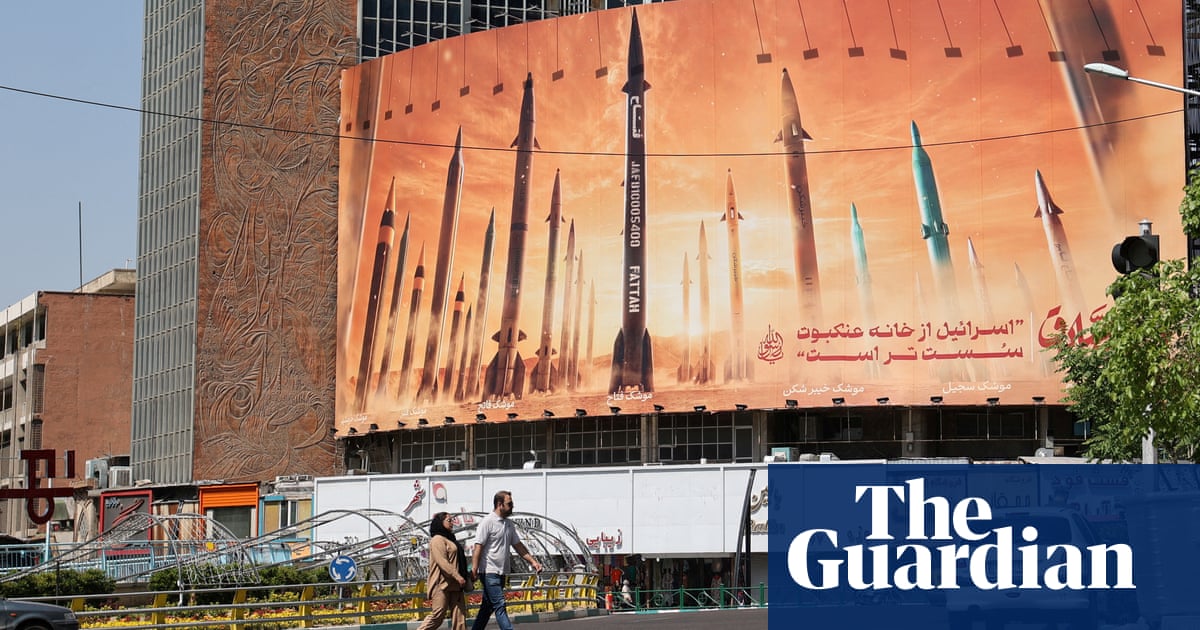World
World leaders urge calm after Israeli drone strike on Iran ratchets up tension

World leaders urged calm on Friday after Israel conducted a pre-dawn drone sortie over Iran following a cycle of tit-for-tat attacks that crossed an important red line that has for decades held the Middle East back from a major regional conflict.
There were tentative hopes late on Friday that the apparent strike attempt against an airbase near the city of Isfahan was sufficiently limited to fend off the threat of a bigger Iranian response and an uncontrolled spiral of violence between a nuclear power and a state with the capacity to develop nuclear weapons quickly.
According to Italy’s foreign minister, Antonio Tajani, speaking later on Friday, the US told the G7 foreign ministers meeting in Capri that it had received “last-minute” information from Israel about a drone action in Iran. Israel’s N12 news channel reported that Israel had also struck targets in Iraq and Syria, and explosions were reported in both those countries.
Iran’s foreign minister, Hossein Amirabdollahian, said the sortie on Isfahan involved miniature drones and had caused no damage or casualties.
“The Zionist regime’s media supporters, in a desperate effort, tried to make victory out of their defeat, while the downed mini-drones have not caused any damage or casualties,” Amirabdollahian told envoys of Muslim nations during a visit to the UN in New York, according to Iranian media. Tehran has indicated that it had no “immediate” plan for retaliation.
“We’re committed to Israel’s security,” the US secretary of state, Antony Blinken, said at the G7 meeting. “We’re also committed to de-escalating.”
Blinken added that despite the confrontation, the US remained “intensely focused on Gaza”, where at least 34,000 Palestinians have been killed in Israel’s war against Hamas and well over a million people have been forced to flee their homes.
The G7 and the European Commission both made calls for the simmering conflict to be defused. The UN secretary general, António Guterres, in his own intervention, said it was “high time to stop the dangerous cycle of retaliation in the Middle East”.
US and European officials were concerned that the breaking of the taboo on direct attacks between the two powers had left the region in a far more precarious position in the coming months and years, as Israel plans to continue its relentless campaign in Gaza, deepening the humanitarian disaster there, and openly weighing a war in Lebanon with Hezbollah, a close Iranian ally.
The Tehran government appeared to shrug off the Friday morning incident near an airbase near the city of Isfahan where it said air defences had brought down three drones, which had been launched inside Iran. A few hours earlier, the foreign ministry had warned that any new Israeli attack would be met with a “maximal” and “decisive” response, but the lengths state media went to minimise the incursion appeared designed to leave the option of not responding.
US officials confirmed that Israel had conducted military operations against Iran and had given Washington a few hours’ notice, but did not give any details of those operations. It remained unclear on Friday night whether only drones had been involved, whether any munitions had actually hit their targets, or had been intercepted, and where the sortie had been launched from.
Reuters quoted a source familiar with western intelligence assessments as agreeing with the initial Iranian claim that the drones had taken off inside Iranian territory, suggesting either special forces or an Iranian faction allied to Israel was involved. Previous attacks inside Iran have been attributed to Israel, including a drone strike also on a weapons factory in Isfahan in January 2023.
Joe Biden’s administration had sought to defuse a brewing conflict which had begun with the Israeli bombing of a Iranian consular building in Damascus, killing a top Islamic Revolutionary Guard Corps (IRGC) general and six other officers, for which Iran retaliated on Sunday morning by launching about 300 missiles and drones at Israel, almost all of which were intercepted.
According to a Reuters account, Biden was successful in persuading members of Israel’s security cabinet from striking back at Iranian territory on Monday night. Ministers Benny Gantz and Gadi Eisenkot, both former armed forces commanders, were reportedly pressing for a forceful and quick response but agreed to hold off following a conversation with Biden, and in the face of differing views from other ministers, Reuters reported, citing two Israeli officials. Planned operations against Iran were postponed twice according to that account.
US officials said that they had been informed by their Israeli counterparts soon after Sunday’s missile and drone attack by Iran, that some form of Israeli counter-strike was inevitable, but the Israelis assured Washington that their response would be “smart” and would not target Iran’s nuclear sites.
The International Atomic Energy Agency (IAEA) confirmed on Friday there had been no damage to Iran’s nuclear facilities. The agency said on the X social media platform that it was continuing to monitor the situation closely and called for maximum restraint from all sides, stressing that “nuclear facilities should never be a target in military conflicts”.
Friday morning’s strike, whatever its scale, was an act of defiance of US influence. Netanyahu, in particular, has long been a hawk on Iran, having threatened Israeli strikes on the country in the past, and has been under pressure from far-right coalition partners to mount a robust response.
With the scale of the retaliation so far extremely limited, the far-right Israeli national security minister, Itamar Ben-Gvir, condemned the response on X as “Feeble!”









